Alibaba.com is a global e-commerce platform that enables customers and merchants to interact and transact with each other.
Since its inception in 1999, Alibaba has become a trusted platform for individuals, small businesses and multinational corporations.
Alibaba Group was founded by Jack Ma Yun, a wealthy Chinese investor and entrepreneur.
It provides various items and services. Alibaba has grown its operations to encompass digital media and entertainment, cloud services, and other commercial offerings.
In this guide, we'll provide you with everything you need to know about Alibaba.com sourcing.
Plus find out how we can help you build a million dollar brand of your own… absolutely FREE.
What is Alibaba?
Alibaba is an online marketplace that links Chinese manufacturers and distributors to global customers seeking goods and services. Businesses can use the website to purchase products for their business, or become a supplier and utilize the platform to sell their products.
Alibaba's primary goal is to facilitate trade between businesses. It works by connecting suppliers who offer products in bulk at wholesale prices to small or medium-sized businesses, who then resell them for a profit. This approach differs from the direct-to-consumer or person-to-person approach.
Who founded Alibaba?
Alibaba was founded by Jack Ma, a former English teacher from Hangzhou, China. Jack Ma and other like-minded entrepreneurs, including Peng Lei, founded Alibaba as a business-to-business (B2B) online marketplace in 1999.
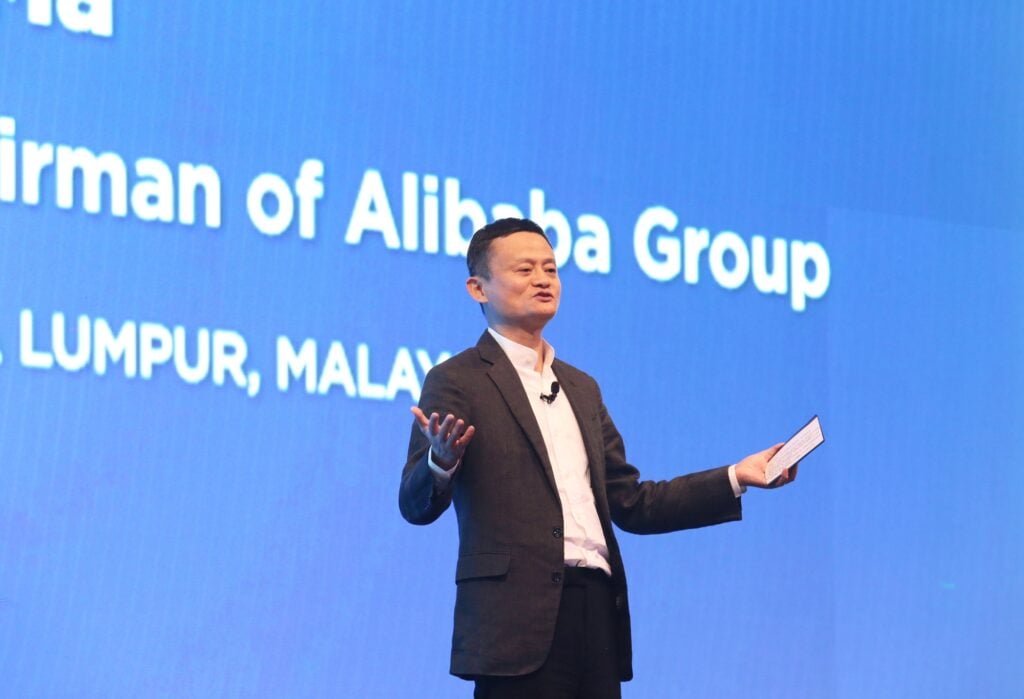
What is Alibaba's origin story?
Alibaba's origin story began in the late 1990s. Jack Ma recognized the untapped potential of the Internet and its ability to transform business and trade. Inspired by a trip to the United States, he discovered the power of the internet. Ma gathered a team of like-minded individuals and co-founded Alibaba in 1999.
The company's name, Alibaba, was chosen from the popular folk tale Ali Baba and the Forty Thieves, which symbolizes adventure, openness and treasure. Alibaba focuses on B2B (business-to-business) online trade, providing a platform that connects manufacturers and suppliers.
Alibaba expanded its services beyond B2B trade. In 2003, it launched Taobao, a consumer-to-consumer (C2C) online marketplace, which later became a dominant force in the Chinese e-commerce industry.
Today, Alibaba Group is a diversified conglomerate with a strong presence in various sectors. This includes e-commerce, cloud computing, digital payments, logistics and entertainment.
How did Alibaba grow?
Alibaba's growth can be attributed to several key factors and strategic decisions that propelled the company to its current prominent position.
- Empowering small businesses: Alibaba focused on empowering small and medium-sized enterprises by providing them with a platform to reach a global customer base. This approach helped foster entrepreneurship and expand Alibaba's supplier and buyer network, fueling its growth.
- Innovative business models: The company introduced innovative business models that disrupted traditional industry practices. For example, Taobao's consumer-to-consumer model transformed e-commerce in China. Tmall's business-to-consumer platform provides a trusted environment for brands to sell directly to consumers.
- Building trust and quality assurance: Alibaba placed a strong emphasis on building trust and quality assurance on its platforms. It implemented systems such as Alipay to enhance security and transparency in online transactions. These measures helped instill confidence in both buyers and sellers and contributed to Alibaba's user growth.
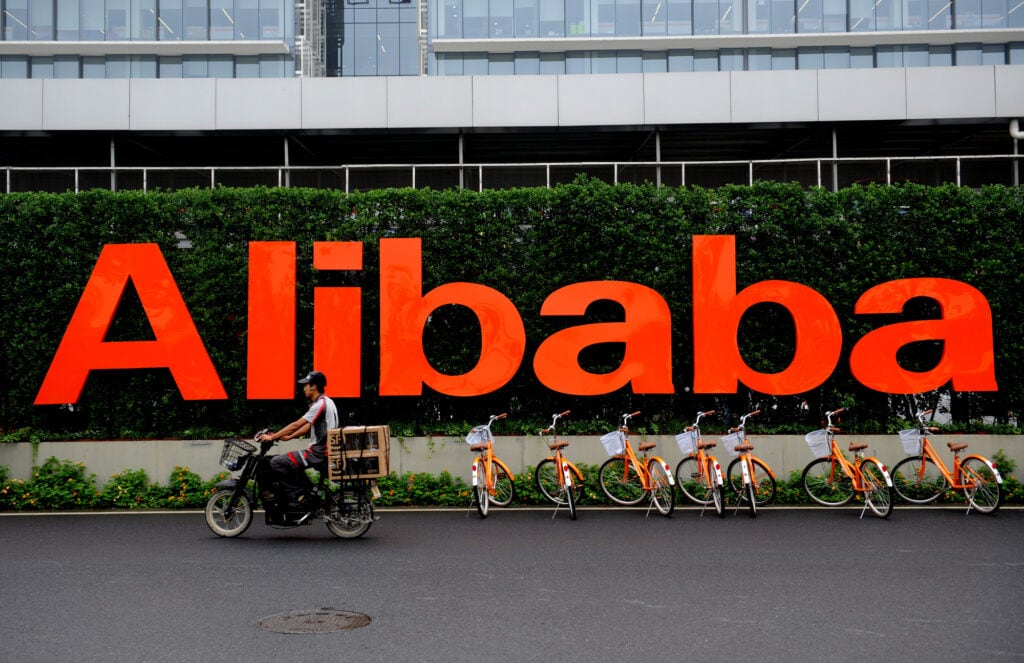
- Expanding beyond e-commerce: Recognizing its diversification potential, Alibaba expanded its services beyond e-commerce. It ventured into sectors such as cloud computing with Alibaba Cloud and digital entertainment with platforms like Youku and Alibaba Pictures. These expansions broadened its revenue streams and solidified its position as a comprehensive digital ecosystem.
- Strategic acquisitions and partnerships: Alibaba pursues strategic acquisitions and partnerships to strengthen its market position and expand its capabilities. UCWeb and Ant Financial Group investment facilitated Alibaba's entry into digital payments.
- Global expansion: It recognized the importance of the international market and expanded its presence beyond China. It launched initiatives to connect international buyers and sellers. This global expansion played a significant role in Alibaba's growth and market dominance.
How was Alibaba funded?
Alibaba Group has secured $8.9 billion in investment across 16 rounds. Alibaba Group is funded by 32 investors.
On March 3, 2015, GIC and Temasek Holdings company launched the Alibaba Taiwan Fund, a single venture fund that raised $316M.
On February 5, 2020, Quibi secured $750M in its latest diversity investment.
Alibaba Group has also sold 69 stocks, and its most successful ventures include Snap, Farfetch and Lyft.
Alibaba Group has added 34 companies to its portfolio, including Sun Art Retail Group. This was purchased for $3.6B on October 18, 2020.
What is Alibaba's valuation?
Alibaba's market capitalization, an indicator used to gauge a company's value, was estimated at $232.03 billion, putting it as the 42nd most valuable company in the world.
What lessons can entrepreneurs learn from the Alibaba story?
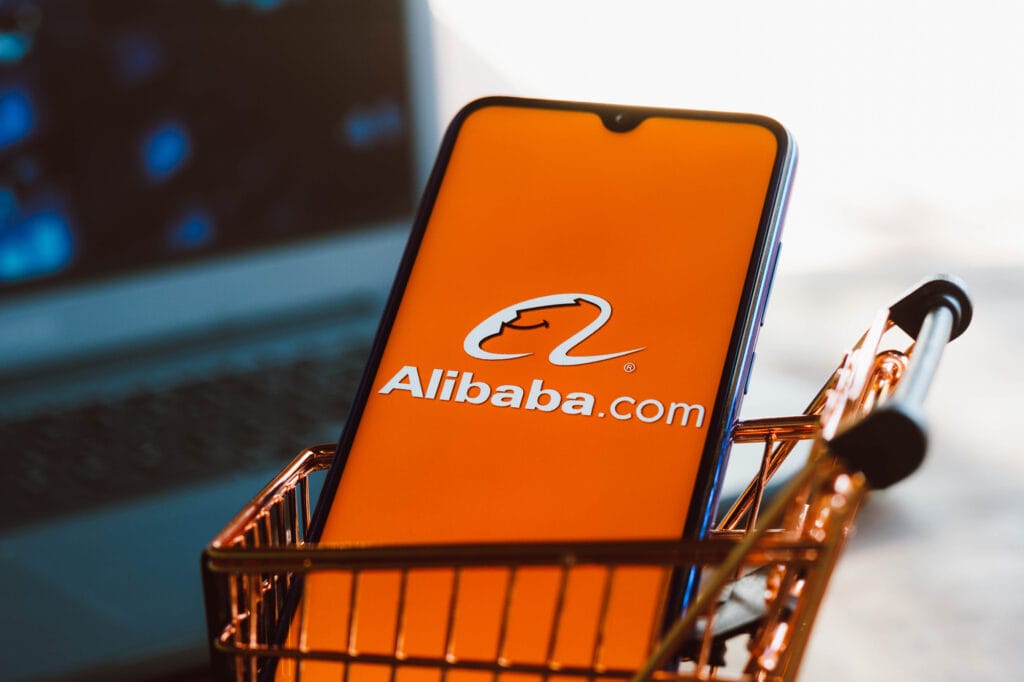
- Seize opportunities: Alibaba's success was built on recognizing internet and e-commerce opportunities. Entrepreneurs should stay alert to emerging trends, technological advancements and shifting market dynamics. By identifying untapped opportunities and being proactive, entrepreneurs can succeed.
- Persistence and resilience: Despite challenges and setbacks throughout its journey, Alibaba persevered and adapted to overcome obstacles. Entrepreneurs should embrace persistence, resilience and learning from failures. Success often requires weathering storms and maintaining a long-term vision.
- Customer-centric approach: Alibaba's focus on empowering small businesses and providing a seamless user experience contributed to its rapid growth. Entrepreneurs should prioritize understanding their target customers and tailoring their products or services to meet their needs. Putting the customer at the center of the business strategy is key to building loyalty.
- Building trust and reputation: Alibaba places a strong emphasis on building trust and ensuring quality on its platforms. Entrepreneurs should prioritize building a solid reputation for their brand through transparency, reliability and consistently delivering value. Trust is crucial for customer loyalty, partnerships and long-term success.
- Innovation and adaptability: Alibaba is constantly innovating and expanding its offerings beyond e-commerce. Entrepreneurs should foster a culture of innovation within their organizations, adapt to changing market dynamics and alter traditional practices. Staying ahead of the curve and embracing the latest technologies and business models can provide a competitive edge.
- Strategic partnerships and collaborations: Alibaba's investments, acquisitions, partnerships and investments have played a vital role in its growth. Entrepreneurs should seek strategic alliances and collaborations that complement their strengths, expand their reach and enhance their capabilities. Building a strong partnership network can unlock new opportunities and accelerate growth.
- Embrace digital transformation: Alibaba has embraced digital technologies to revolutionize traditional industries. Entrepreneurs should adopt digital transformation, invest in technology and leverage online tools. This is to enhance efficiency, customer experience and operational effectiveness.
FAQs
What is Alibaba?
Alibaba is a multinational conglomerate and one of the world's largest e-commerce companies.
What services and products does Alibaba provide?

E-commerce platforms
- Taobao: A consumer-to-consumer online marketplace where individuals and small businesses can sell products directly to consumers.
- Tmall: A business-to-consumer platform that hosts branded stores where businesses can sell their products to Chinese consumers.
- Alibaba.com: A business-to-business platform that connects global buyers and suppliers, facilitating international trade.
Cloud computing and data services:
- Alibaba Cloud: Cloud computing services include infrastructure as a service (IaaS), platform as a service (PaaS) and software as a service (SaaS). Alibaba Cloud offers computing power, storage, database management, artificial intelligence and big data analytics.
Digital entertainment:
- Youku: A leading online video platform in China, similar to YouTube. It offers a wide range of licensed content, original productions, and user-generated videos.
- Alibaba Pictures: A film production and distribution company involved in the creation and promotion of movies, TV series and other forms of entertainment content.
Digital payments and financial services:
- Alipay: A popular digital payment platform that enables secure and convenient online and mobile transactions. Alipay also provides financial services such as wealth management, insurance and lending.
- Ant Group: A leading digital financial services provider that offers a variety of financial products and services, including mobile payments, microloans, wealth management and credit scoring.
Logistics and supply chain services:
- Cainiao Network: Alibaba's logistics affiliate that provides end-to-end supply chain solutions, including warehousing, fulfillment, shipping and delivery services.
- AliExpress: An online retail platform that allows Chinese businesses to sell products directly to customers worldwide.
Digital marketing and advertising:
- Alibaba offers various digital marketing and advertising services to help businesses promote their products and reach their target audience. These services include display advertising, search engine marketing, social media marketing and data-driven marketing solutions.
What is the Alibaba Group?
Alibaba Group is a multinational organization with various businesses and subsidiaries. It was founded in 1999 by Jack Ma and a team of 18 people. It's headquartered in Hangzhou, China. Alibaba Group is known for its e-commerce platforms but has expanded into several other sectors.
What is Alibaba Cloud?
Alibaba Cloud, also known as Aliyun, is Alibaba Group's cloud computing service. It is a leading provider of cloud computing services and solutions globally. Alibaba Cloud offers a comprehensive suite of cloud services, including infrastructure as a service (IaaS), platform as a service (PaaS) and software as a service (SaaS).
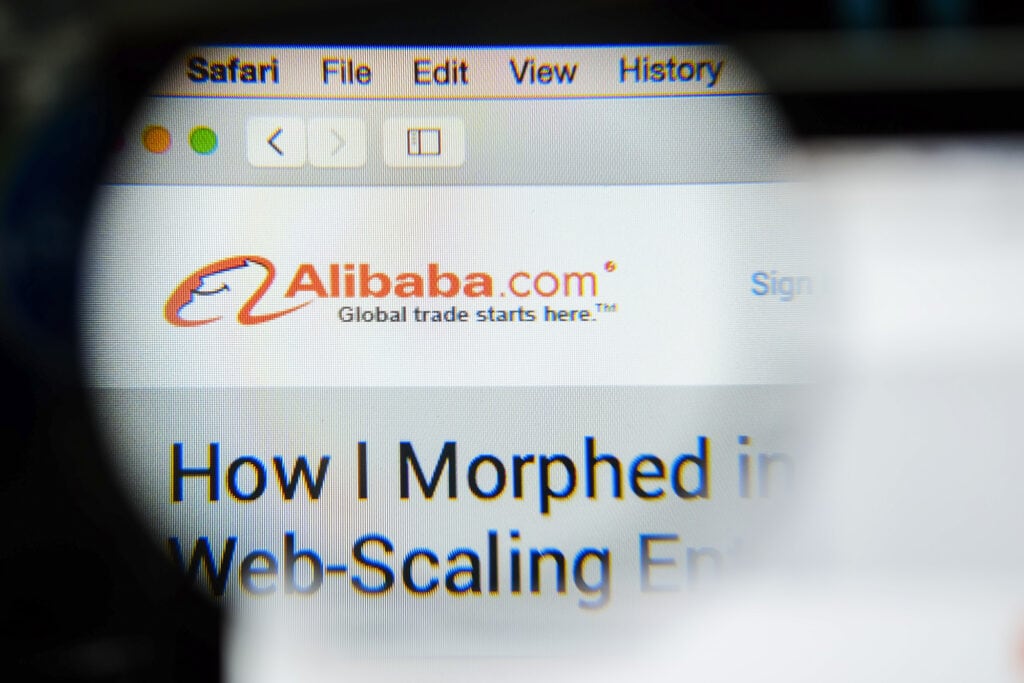
What is Alibaba's e-commerce platform?
Alibaba operates several e-commerce platforms, each serving different purposes and target markets. Alibaba's key e-commerce platforms include:
- Taobao: Taobao is a consumer-to-consumer (C2C) online marketplace. It allows individuals and small businesses to create online stores and sell products directly to consumers. Taobao offers products such as fashion, electronics, home goods and more. It is one of the largest e-commerce platforms in China.
- Tmall: Tmall is a business-to-consumer (B2C) online marketplace that hosts branded stores. This is where businesses can sell their products to Chinese consumers. Tmall offers a variety of products from well-known brands across various categories. They include fashion, electronics and beauty. It focuses on providing a trusted and reliable shopping experience for Chinese consumers.
- Alibaba.com: Alibaba.com is a business-to-business (B2B) online marketplace that connects global buyers and suppliers. It facilitates international trade by providing a platform for businesses to showcase their products, find potential partners and negotiate deals. Alibaba.com serves as a hub for wholesale trade, sourcing and supply chain management.
- AliExpress: AliExpress is an online retail platform that allows Chinese businesses to sell products directly to customers worldwide. It offers electronics, clothing, accessories and home goods. AliExpress targets international consumers and provides access to different products at competitive prices.
What are Alibaba's subsidiaries?
Alibaba Group offers a variety of services, including:
- Taobao
- Tmall
- Lazada
- DingTalk
- Ant Group
- Aliexpress
- Freshippo
- Alibaba.com
- Alibaba Cloud
- Cainiao Network
- Youku Tudou
- Alibaba Pictures
- Alibaba Health Information Technology
How does Alibaba use data?
Data analytics is the practice of analyzing data to draw meaningful insights. This has become critical in today's world, where large sets of data need to be mined to uncover correlations and other hidden patterns. For businesses such as Alibaba, this process is further enhanced by artificial intelligence, machine learning and ever-evolving algorithms.
Alibaba leverages data to determine customers' purchasing patterns, industry trends, preferences and the current business environment. This allows them to create customized marketing plans that match customers' needs. They can create suitable product assortments, set appropriate prices and offer top-notch service.
What is Alibaba's relationship with Tencent?
Alibaba and Tencent are two of the largest and most influential technology companies in China. While they are both prominent players in the Chinese technology landscape, they compete in several areas. They also collaborate in certain domains. Here are some aspects of Alibaba's relationship with Tencent:

Competition
- E-commerce: Alibaba's e-commerce platforms, such as Taobao and Tmall, compete directly with Tencent's e-commerce offerings, including WeChat Pay's Mini Programs. This enables users to buy products within the WeChat ecosystem.
- Mobile Payments: Alibaba's Alipay and Tencent's WeChat Pay are the two dominant mobile payment platforms in China. They compete in the mobile payment market, striving to expand their user bases and merchant networks.
- Cloud Computing: Alibaba Cloud and Tencent Cloud compete in the cloud computing market, offering similar services and solutions to businesses and developers.
Collaboration
- Digital Payments: Alibaba's Alipay and Tencent's WeChat Pay collaborate in certain scenarios. For instance, Alipay users can link their accounts to WeChat Pay, enabling cross-platform payment compatibility.
- Investments and Partnerships: Alibaba and Tencent have made strategic investments and formed partnerships in various companies and sectors. They often invest in startup and technology funding rounds. They seek opportunities to expand their influence and gain access to new markets.
What is Alibaba's business strategy?
The company has built an ecosystem that spans e-commerce, cloud computing, digital payments, logistics and entertainment. Here are some key elements of Alibaba's business strategy:
- Alibaba's new retail strategy seeks to bridge the gap between online and offline retail: In 2014, eCommerce accounted for just 12.4% of China's retail market. However, it has since grown to nearly 50% of sales. The company's strategy uses both digital and physical stores, creating a seamless connection between them.
- Create a true omni-channel retail chain: Alibaba entered physical retail in 2016, launching high-tech supermarkets called Hema or Freshippo. These stores have a distinct New Retail strategy, allowing customers to experience omnichannel shopping. For those who can't visit China, these stores offer an exceptional blend of physical and digital elements, creating a true omni-channel retail chain.
- Capitalize on community buying growth: The Chinese market is experiencing rapid growth in community buying. This model, pioneered by online retailers such as Pinduoduo, allows shoppers to purchase items in bulk at a lower rate than if they bought each item separately. The concept is similar to Groupon and has become very popular in China.
Takeaways
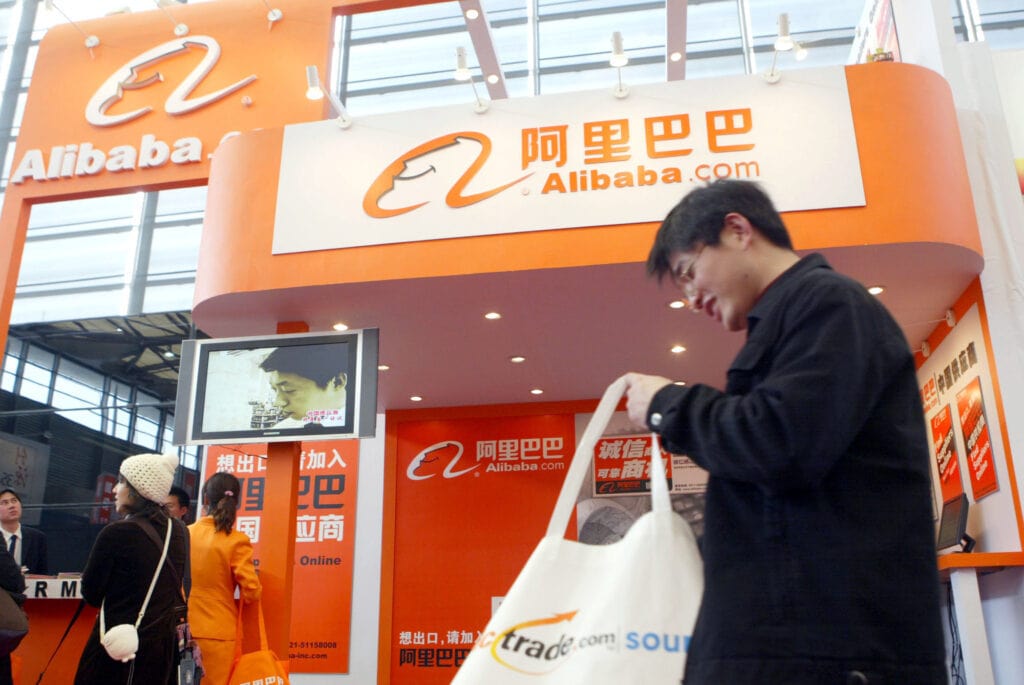
Alibaba is an online marketplace that links Chinese manufacturers and distributors to global customers seeking goods and services. It works by connecting suppliers who offer products in bulk at wholesale prices to small or medium-sized businesses, who then resell them for a profit.
Alibaba Group was founded in 1999 by Jack Ma Yun, a wealthy Chinese investor and entrepreneur. It provides services such as digital media and entertainment, cloud services and other commercial offerings.
The company's name, "Alibaba," was chosen from the popular folk tale "Ali Baba and the Forty Thieves," which symbolizes adventure, openness and treasure.
Are you feeling inspired? Want to build your own successful e-commerce brand? Look no further! In addition to providing you with valuable insights into Alibaba's history, growth, and business strategies, we have an exciting offer just for you.
Introducing our FREE playbook that unveils the secrets to building a million-dollar e-commerce brand in approximately a year. This comprehensive guide will equip you with the knowledge, strategies, and tools necessary to navigate the competitive e-commerce landscape and maximize your success.
Request your free million dollar playbook and let’s get started!











